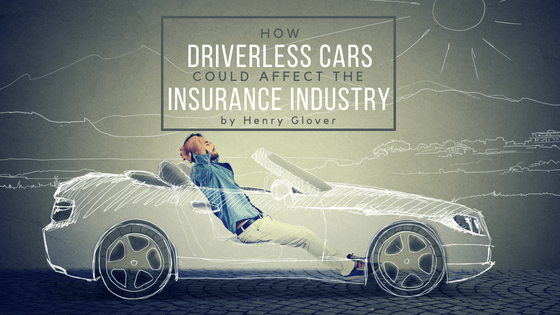I can’t say enough about Henry Glover. He was fantastic. He answered all of my questions and helped me with some insurance for my grandmother also. He even told me that she should stay where she is because he couldn’t get her a better deal. He put our needs above his needs…Overall this was just an incredible experience and a breath of fresh air after the last agent I was dealing with. I will be recommending him to everyone I know and look forward to a long business relationship with him. Thank you!

Natural Disasters: Is Your Home Properly Insured?
Homeowners all across the country are at risk of falling victim to a natural disaster. From floods to tornadoes to earthquakes, every region is at risk for a severe weather event.
Those on the East Coast are currently dealing with the effects of Hurricane Florence. Southwestern states like Alabama, Arkansas, Georgia, Mississippi, etc. are no strangers to hurricanes, but we’ve also had our fair share of tornadoes and thunderstorms.
Before securing a policy for homeowners insurance, you’ll want to be familiar with the natural disasters local to your area. Be sure that you’re getting the best coverage for your location. Unfortunately, it’s only after severe weather hits that some homeowners realize they weren’t properly insured.
Flood Insurance
One especially important note is to specifically inquire about flood insurance. Homeowners in nearly every state are at risk for flooding, but most standard home insurance policies do not cover flood damage. It’s also important to remember that flood policies won’t kick in until 30 days after they’re purchased unless it is tied to a loan closing. The day before a huge storm isn’t the best time to realize you forgot to call for flood insurance. Oftentimes insurance companies will put a moratorium on “New Business” when a known storm is on the way to prevent people without flood insurance purchasing just before the storm hits.
Be Vigilant with Your Policy
Home insurance isn’t a bill you should pay and forget about. Your policy is an important part of your home’s overall security because you never know when disaster will strike. The insurance coverage required by your mortgage company often isn’t enough. They only care about the structure based on the loan amount, which often times the loan is less than the actual cost to rebuild. Also, keep in mind that they don’t care about your personal belongings, so you want to make sure that you have enough personal property coverage. In short, your home’s market value and its replacement cost are two very different numbers. You want to make sure you have the right coverage for furniture and personal belongings in your home.
You should also notify your insurer when you make any major renovations that would add to the value of your home. If you neglect to disclose that you built an addition onto your home or otherwise remodeled, it is a gamble that could cost you in the long run. Upfront honesty will only be an advantage in the event that you need to file a claim.
“But I Only Rent”
Even if you only rent a property, you should still have renters insurance to cover all your personal property in the case of an emergency. Your wardrobe alone could be worth thousands of dollars, so the cost of insurance is inexpensive considering the potential benefits.
Make it Easy on Yourself
Technology is a beautiful thing. Because most of us carry smartphones everywhere, it’s easy to record damage following any destruction.
As a preventative measure, it’s also important to inventory your possessions once a year. By either writing them down or taking photos of every room, you’ll save yourself from scrambling to inventory from memory alone.
To know if you’re fully covered in the event of a natural disaster or severe weather event, call your insurance agent. They’ll be able to review your policy and give you more information specific to your situation.

How Driverless Cars Could Affect the Insurance Industry
Self-driving cars sounds like something from a futuristic sci-fi movie, but it could be more normalized in our society in the next couple decades. Because of improvements in new technology, some experts predict that self-driving vehicles could be the norm by 2040.
If the automobile industry changes that much, the auto insurance industry will have to keep up. We still have many years before this is a tangible possibility, but here are a couple ways driverless cars could affect the insurance industry.
- Lower Premiums
Advanced driver assistance systems (ADAS) are becoming more common, and many insurers offer discounts for drivers with these features in their vehicle. This means that if your car has forward collision prevention and lane change alerts, you might already be offered a premium discount. Because the technology of self-driving cars has the potential to reduce accidents, similar discounts are expected.
- Liability
If your self-driving car causes an accident, are you liable? Or is the car manufacturer liable because of a fault in their programming? For the time being, the latter seems to be the general consensus. Google, Volvo, Tesla and Mercedes-Benz have already set the precedent by accepting liability when a vehicle’s self-driving system was at fault for a crash.
Adjustment Period, Problems and Other Considerations
According to various reports, over 90% of auto accidents today are caused by human error. If driverless cars can reduce the number of accidents (and deaths) on the road, that would be incredible. However, it is worth noting that there will be a significant adjustment period.
The autonomous cars make decisions based on algorithms and what they interpret from their environment. If you’ve ever driven a car in a busy city, you know that drivers don’t always behave the way you think they’re going to. For the automobile systems to effectively drive the same roads as human drivers, it will take time and brain power.
Luckily, the change to driverless cars won’t happen overnight. It’s expected to happen in 5 stages, slowly adopting autonomous features to move from semi-autonomous to fully autonomous vehicles that require no human interaction. Just think about the features we see in cars today. They can parallel park themselves, have cruise control, etc. We’re well on our way to more autonomous features in newer models.
Another factor to consider is that most fully autonomous vehicles will be owned by ride-sharing services or auto manufacturers and not individuals. For the most part, insurers work with individual drivers, so this would minimize the effect of driverless cars for now.
Despite all the recent excitement around these driverless vehicles, the gradual change to fully autonomous cars will give us insurers time to adjust and transition smoothly. Change is inevitable, but who’s to say that it won’t be a positive, exciting change for the industry.

Independent vs Direct vs Captive Insurance Agents
Approximately seventy-five percent of the insurance market is run by a combination of ‘’captive’’ and ‘’direct’’ insurance carriers. Captives are large local sales forces, like Allstate, Nationwide and State Farm. Directs are companies that bypass a sales force and sell directly to the consumer, like Geico, USAA and The General.
With these companies dominating advertisements across the nation, it’s no wonder the remaining 25% of the market is run by independent agencies, like my company, Red Rock Insurance Group. Whether you’re a consumer of insurance or you’re an agent deciding on your next career path, you should understand the difference between independent, direct and captive agents.
Independent Agents
An independent insurance agent isn’t bound to one company, meaning they can provide a plethora of options to find the best fit for their clients. These options are undoubtedly beneficial for consumers, but if you’re choosing to be an independent agent, you should be aware that you’ll need to be familiar with all different aspects of the carriers you have access to.
Independent agents are local and licensed in the state they’re working in, so they’re easily accessible for questions. These agents have a wide variety of training available to them because of all the companies they represent, and they’re pros at seeking value for their customers.
Direct Agents
Direct insurance agencies, also referred to as “online insurance,” have grown in popularity as people have become more comfortable with online shopping. If you’re a fan of technology, you might enjoy having the insurance app on your phone, and the ease of accessing quotes. This probably all sounds great, but there are some serious fallbacks to consider.
The lack of a personal agent may or may not reduce cost, but can be frustrating because you’ll probably never speak to the same agent twice if you call. Additionally, the consumer is responsible for changing and managing policies, so any mistakes or oversights fall on your shoulders. Technology and the coverage options found in the “guts” of the policy can be confusing for some and there’s no local agent to speak with in a time of need.
Captive Agents
The most recognizable names in insurance are usually found in the captive sector. Because each agent can only offer insurance from one company, they generally have in-depth information and training about that company’s services. As an agent, you’ll benefit from the advertising and marketing done by the parent company. But for consumers and agents alike, there are some things to consider.
You’ll only have one insurance option, so if the parent company discontinues certain options, it could be inconvenient for some consumers. As a consumer with a strict budget, you might have to reduce coverage, raise deductible, or opt for a higher premium when rates increase. Insurance companies should be focused on the client, but the lack of flexibility and options sometimes makes it difficult for captive agents to provide the best possible service.
I may be biased because of my own business, but there’s a reason I went into the independent insurance sector — it’s because I truly believe it’s the best option for customers and agents alike.
Here is a YouTube video I made a couple years ago that outlines the benefits of independent agents like the ones you’ll find at Red Rock Insurance Group.
About Henry Glover
Henry Glover of Birmingham, Alabama, is the Founder and CEO of Altasurance (formally known as Red Rock Insurance), an independent insurance agency servicing clients with a variety of insurance needs. From auto insurance to life insurance, Henry Glover has crafted a team of agents to offer expert-level support and direction for your insurance inquiries. Henry founded the insurance group in 2009 and has built it to reach within several local markets. The small team of under a dozen employees is currently expanding as their success continues to grow.
Henry didn’t always know that the insurance industry was where he would build his legacy. From a young age, Henry Glover knew that he wanted to be successful. He never cared if he started a soap factory or an insurance agency, he just wanted something he could call his own. Henry didn’t know soap, but he did know insurance, so he went with insurance.

Educational Journey
Henry’s entry into the insurance industry was a bit of a roller coaster. He began school at Auburn University, studying software engineering. He loved software but hated school, so he decided to drop out even though his parents were paying all the costs. They were obviously irritated, and immediately cut him off from their payroll and stopped paying his out of state tuition. To find a job, Henry responded to an ad in the classifieds (back when the classifieds were a thing), and applied for a job selling insurance. Little did he know, the job was selling life insurance door-to-door. But Henry had to make ends meet, so he stuck with it and ended up being very successful. Henry Glover quickly became one of the top producers in the state, but realized that the business model and the job were not sustainable for his future.
Being the salesman that he is, Henry Glover made a deal with his parents that he would go back to school. This time, he decided to take out student loans, as he had been out of school long enough to qualify and get in-state tuition. The deal was that if Henry successfully graduated, his parents would have to pay off his student loans. It was a win-win situation as Henry took all the risk should he decide again that school wasn’t for him. In reality, Henry didn’t really didn’t care about college, but his parents did. They were thrilled at the prospect of rewarding their son after graduation.
However, there was a problem. Henry was basically having to work his way through school because student loans didn’t pay for everything. He worked for an insurance agency that specializes in Property and Casualty Insurance (different from what he does now with Auto, Home and Commercial Insurance). The problem was what he called the “student salesman dilemma” — as he worked on commission only, he often had to decide between closing a sale or studying for a test. He always wanted to close the sale, but he was on the hook for his school loans if he didn’t pass the class. You see, both had a economic cost/benefit and it was too hard to choose. Barring this realization, Henry did the responsible thing and quit his insurance job to take an hourly job, first as a cook, and eventually in a jewelry warehouse. But working for that insurance agency did set the groundwork for what eventually became his insurance agency’s business model.
Henry Glover finally graduated from college in 2006 with a degree in Economics and a minor in Computer Science, making his parents proud…and leaving them with the student loan bill.
Career
After college graduation, Henry Glover of Birmingham, Alabama, pursued a career in the banking industry, but he didn’t quite receive the same thrill that he experienced when selling insurance. He always knew he would get back into insurance, it was just a question of how.
After about 2 years of gaining sales and service skills through his banking position, Henry decided he wanted to create his own success from the ground up. He spent time getting to know his bank clients who owned businesses, learning from their success and failures and finding out what he would be getting himself into. With an entrepreneurial spirit and a passion for the challenge on his mind, Henry Glover went back to the industry he knew best — with a few extra skills that would help to set him up for success.
Henry Glover has been working in the insurance industry long enough to know that times are changing. The world is becoming digital, and 75% of the insurance market is run by a combination of ‘captive’ and ‘direct’ insurance carriers. ‘Captives’ are large local sales forces like Allstate, Nationwide, State Farm, etc., and the ‘directs’ are companies that bypass a sales force and sell directly to the consumer (i.e. Geico, USAA, etc.).
However, Henry doesn’t bat an eye when it comes to worrying about his competitors. Because there will always be a demand for those larger entities, he chooses to focus on the nuances within the rigid insurance industry in order to set Red Rock Insurance Group apart from others. Red Rock knows insurance, and Henry knows that customers are most satisfied when there is a happy mix of both digital and traditional practices within their business model.
Having a knack for technology, Henry Glover has also become quite the experienced programmer. He’s developed several pieces of tech, not only as a hobby, but for his company as well. In his spare time, Henry enjoys educating himself on various technical aspects of development and invention. This draw to technology has been passed down to his 8 year old daughter as well, who loves bonding with her father over the subject.
Henry Glover currently resides in Birmingham, Alabama. Red Rock Insurance Group continues to grow and reach new audiences, and expand upon their successes so far. For more information about Henry Glover and Red Rock Insurance Group, stay tuned to his blog featured here.